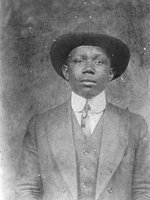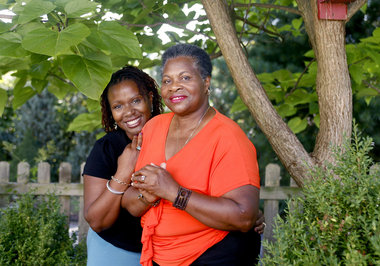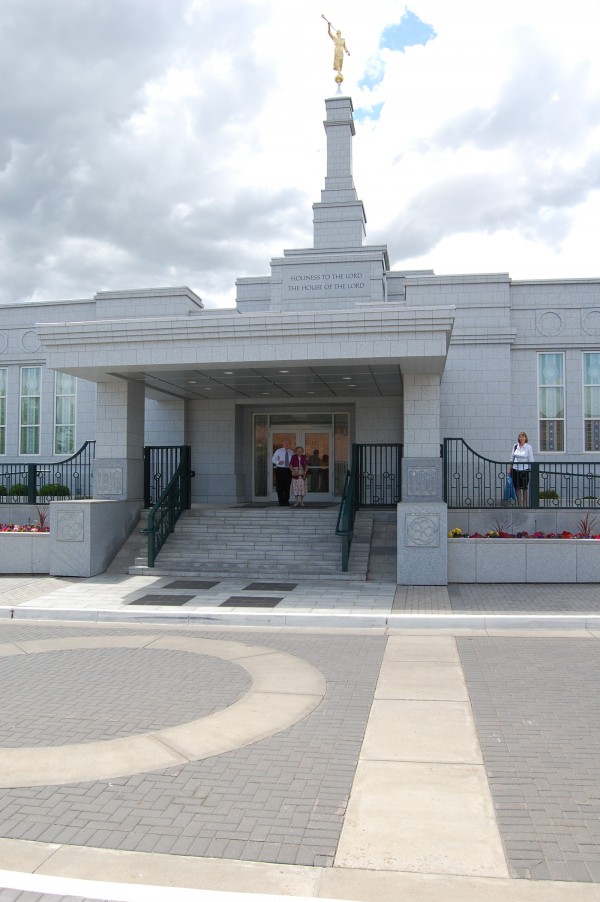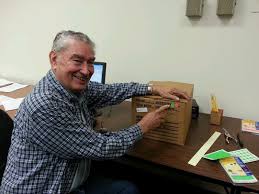There are many people worldwide who have a keen passion for tracing their lineage and spend countless hours researching the stories of their forebears. This exploration into generational history is known as genealogical research, or more commonly known as family history research.
Our English word “genealogy” derives from the Greek word γενεαλογία, which is actually comprised of two words: γενεά, genea, “generation”; and λόγος, logos, “knowledge”. Therefore, genealogy or family history research, is the literal gaining of knowledge of a generation or past generations. That knowledge is obtained through tracing family lineages and histories with such helps as “oral traditions, historical records, genetic analysis, and other records to obtain information about a family and to demonstrate kinship and pedigrees of its members. The results are often displayed in charts or written as narratives.” [1]
Elder John A. Widtsoe, a member of the Quorum of the Twelve Apostles of The Church of Jesus Christ of Latter-day Saints (inadvertently referred to as the Mormon Church by the media and others) from 1921 to 1952, taught,
Those who give themselves with all their might and main to this work…receive help from the other side, and not merely in gathering genealogies. Whosoever seeks to help those on the other side receives help in return in all the affairs of life (John A. Widtsoe, Utah Genealogical and Historical Magazine, July 1931, p. 104).
The Ties That Bind
 For some, genealogical research is merely a pastime, but for others, such as members of The Church of Jesus Christ, the research that is performed has lasting significance both in this mortal life, as well as in the eternities. Knowing something about our family history helps us to put some things regarding our families into better perspective, and also gives us a better understanding of who we are as individuals. Through the means of family history research families are bound together across the expanse of generations.
For some, genealogical research is merely a pastime, but for others, such as members of The Church of Jesus Christ, the research that is performed has lasting significance both in this mortal life, as well as in the eternities. Knowing something about our family history helps us to put some things regarding our families into better perspective, and also gives us a better understanding of who we are as individuals. Through the means of family history research families are bound together across the expanse of generations.
Elder Bruce C. Hafen, a General Authority of The Church of Jesus Christ, expressed some thoughts concerning the bind that ties generations together,
There really can be a bond and a sense of belonging that ties together generations. … This bond gives us a sense of identity and purpose. Our ties with the eternal world suddenly become very real, sharpening our life’s focus and lifting our expectations. … We can discover within ourselves a reservoir of patience and endurance that we never will find without the deep commitment that grows from a sense of real belonging. Exerting such immovable loyalty to another person teaches us how to love – indeed, how to be more like the Savior. Our sense of belonging to one another…foreshadows our belonging in the eternal family of God. Our willingness to discipline our individual desires enough to honor [our] loved ones prepares us to belong to Him who is our Father (Bruce C. Hafen, “Planting Promises in the Hearts of the Children”, Liahona, June 1998, 16).
The Role of Family Medical History in Family History Research
Those in the medical profession are realizing that family history is of great value as well, but in a different sense. Doctors are informing their patients that a family’s medical history is as vital a part of learning about a family’s roots, as the rest of the genealogical research.
Health professionals are increasingly trying to persuade patients to create and share family medical histories, because they can provide doctors with valuable information that can help them create individualized preventative care plans, said Vence L. Bonham, Jr., chief of the Education and Community Involvement Branch of the National Human Genome Research Institute.
“It’s the one tool that’s freely available to everyone,” Bonham said. [1]
 For many years doctors have relied upon genetic testing in helping them to prescribe individualized preventive medical procedures. However, the use of such technology is expensive, and does not afford a physician the same level of accuracy in diagnosing a medical condition which may be hereditary, as that of family medical records that could possibly include the age at which an ancestor developed certain medical conditions, and the diagnosis that was rendered at that particular time. The availability and use of family medical records could enable a medical professional to determine if a medical condition is the result of genetics, choice of lifestyle, or a combination of both.
For many years doctors have relied upon genetic testing in helping them to prescribe individualized preventive medical procedures. However, the use of such technology is expensive, and does not afford a physician the same level of accuracy in diagnosing a medical condition which may be hereditary, as that of family medical records that could possibly include the age at which an ancestor developed certain medical conditions, and the diagnosis that was rendered at that particular time. The availability and use of family medical records could enable a medical professional to determine if a medical condition is the result of genetics, choice of lifestyle, or a combination of both.
A three-generation pedigree that includes not only diagnoses, but also the age at which family members developed those conditions, is the ideal, O’Leary said. This kind of history can allow a doctor to prescribe preventive measures and additional screenings that could save a person from the family fate. Often, knowing a patient’s family history can have a cascading effect that leads to selective, more effective testing. For example, a doctor might test a patient with a family history of breast cancer for genes known to cause the disease. [1]
James O’Leary, chief of the Innovation Office of the Genetic Alliance, an organization based in Washington, D.C., stated, “there is now renewed interest in family medical histories, and the conversation around the issue is changing.” [1] Family medical histories have shed a new light on an old subject and have brought hope in medical situation that perhaps were once thought of as something that simply occurs in a family line, with the inevitable prognosis being fatalism. O’Leary further stated, “Family history is a great way to get people talking about health, and the need to support others in the family. Health is a family matter, and a community matter as well.” [1]
How to Gather, Store, and Share Family Medical History
The Mayo Clinic has offered several helpful tips for gathering family medical information: [1]
-
Bring up the topic of your family’s health history at family gatherings such as holiday gatherings, or funerals where people are prone to speak more openly about the subject.
-
Ensure that everyone concerned knows your reasons for asking for such information.
-
Offer to make the information available to all members of the family.
-
Respect confidentiality. Some members of the family may not wish to speak about existing or past medical conditions.
-
Use available resources such as obituaries and death certificates which often contain valuable information.
There are several methods available for storing and sharing the family medical history information that a person collects. There are even some free online resources available to include: Family Health History.org, and a service provided by the Surgeon General at Family History. HHS.gov.
President Boyd K. Packer, a member of the Quorum of the Twelve Apostles of The Church of Jesus Christ of Latter-day Saints, concerning family history work as a whole, has taught us, “When we research our own lines we become interested in more than just names. . . . Our interest turns our hearts to our fathers—we seek to find them and to know them and to serve them” (Boyd K. Packer; “Your Family History: Getting Started”; Ensign, August 2003).
Additional Resource:
About Keith L. Brown
Keith L. Brown is a convert to The Church of Jesus Christ of Latter-day Saints, having been born and raised Baptist. He was studying to be a Baptist minister at the time of his conversion to the LDS faith. He was baptized on 10 March 1998 in Reykjavik, Iceland while serving on active duty in the United States Navy in Keflavic, Iceland. He currently serves as the First Assistant to the High Priest Group for the Annapolis, Maryland Ward. He is a 30-year honorably retired United States Navy Veteran.



